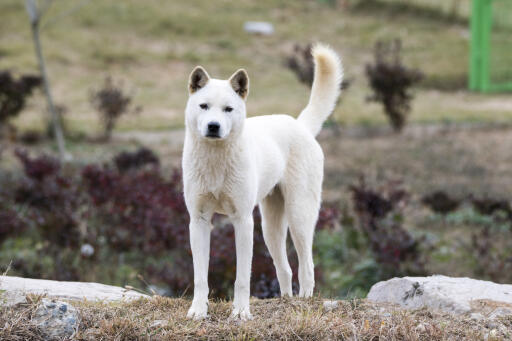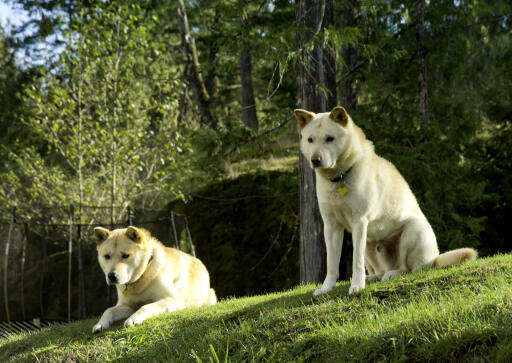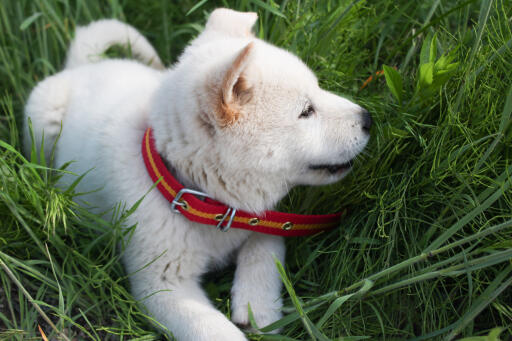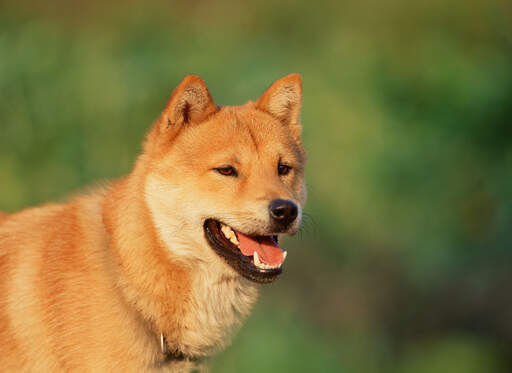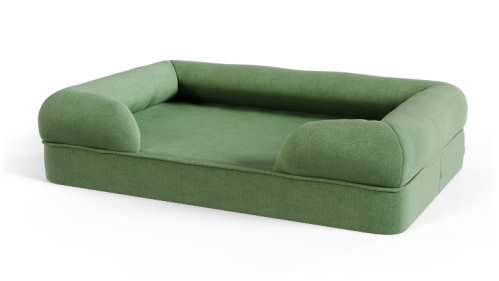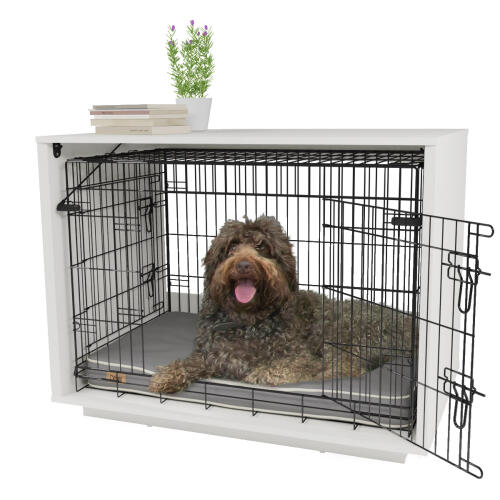Korean Jindo Dog




Geschichte
The Jindo dog originates from Jindo Island, Korea and is similar in appearance to the Japanese Shiba. It was bred to hunt small rodents and prey as large as deer, but was commonly kept as 'gate keepers' used to guard farms and houses. Their exact origin is unknown, but it is believed that they were cross bred with Mongolian dogs when the Mongol forces invaded Korea around the 13th century. They are incredibly rare outside of Korea, with the Korean Government giving them protective status. There are only 25 Jindoes registered in the UK, but they are the most popular dog in Korea.
Verhalten
Fiercely loyal to their owners, Jindoes are great family pets, getting along well with children, other dogs and pets if raised with them. They have an ability to know friend from foe and can be wary of strangers, but once invited into the home they are usually accepting. Early socialisation is vital with this breed as they can become territorial, so introducing them to different situations, people, dogs and places is important. Try and get as many people as possible to visit the house when they are puppies to make them well rounded and accustomed to people visiting the home. They make excellent watch and guard dogs and can be very protective of their family.
Jindoes are highly intelligent but stubborn dogs. They need firm, consistent training and if this is given, they will be wonderfully trained dogs. They like to learn and do so quickly, but will always try and get their own way. Training will need to continue for the life of the dog to reinforce that you are the boss. Once trained, they will show incredible loyalty and obedience. However, their chase instinct can sometimes rear its ugly head and they will run off in search of quarry. The Korean army use Jindoes, which goes to show the potential obedience level of the breed.
They need a high level of activity to keep them physically and mentally stimulated, but unless recall is excellent, it is best to walk them on a lead or in a safe, fenced area. They love to roam and can walk for miles, so make good hiking partners. Many Jindoes have a fear of running water, with some refusing to go out in the rain; a fair weather dog! Once walked they are more than happy to lie at your feet and stare at you adoringly, or cuddle up on the sofa. They are very clean dogs, who are always grooming themselves.
Their double coat moults heavily twice a year, so they are best brushed every day to remove the dense fur of the undercoat. Bathing them is possible even if they are against the idea. Best to start getting them used to water from an early age and making bath time a pleasant experience with treats, toys and lots of affection.
Jindoes are a healthy breed with few hereditary concerns, although hypothyroidism is sometimes seen.
Charakter
Korean Jindos possess a free spirited and independent temperament. These dogs love to roam so it is important this is managed in a safe way and that they are kept confined or on a leash when it is not safe or appropriate for them to roam. They are protective and loving of family which makes them excellant guard dogs although they can be aggressive towards other dogs and guests. Early socialisation and training is important here so that the Jindo grows into a well rounded dog.
Gesundheitliche Probleme
Health problems that may affect Korean Jindos include patella luxation (dislocation of the knee cap), allergies, cataracts and hypothyroidism.
Einzelheiten zur Rasse
- Status: Common
- Lebenserwartung: 10 -13 years
- Produktgewicht: 16 - 27 kg
- Höhe: 18 - 20"
- Selten: Nein
- Fell: Größe M
- Pflegeanforderungen: Mehr als einmal pro Woche
- Stadt oder Land: Beides
- Mindestanforderungen an Umgebung: Kleines Haus
- Mindestanforderungen an Garten: Kleiner bis mittelgroßer Garten
- Rassetyp: Begleithund
- Version: Größe M
- Energieniveau: Größe M
- Benötigte Bewegung: Bis zu einer Stunde

